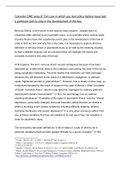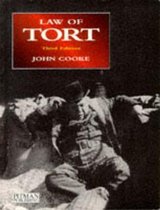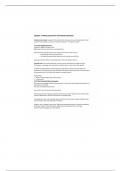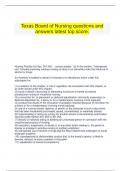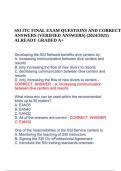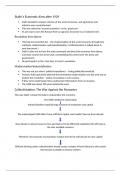Consider ONE area of Tort Law in which you feel policy factors have had
a particular part to play in the development of the law.
Nervous Shock, a term which is still used by many lawyers 1, despite that it is
nowadays often referred to as psychiatric injury, is an example where various types
of policy factors have had a particular part to play in the development of the law. In
order to find out how and why this is the case, it is necessary to explore what the
definition of nervous shock or psychiatric injury is, as well as the meaning of policy
so that a detailed analysis can be provided which will highlight the issues and
concepts involved in this area of tort law.
At first glance, the term ‘nervous shock’ sounds ambiguous because it has been
described as “a label which adds to the confusion surrounding this area of the law by
being completely misleading. The term implies that claimants can seek damages
because they are shocked at the result of a defendant’s negligence, or perhaps
upset, frightened, worried or grief-stricken”2. However, this is clearly not the case, as
it was demonstrated by the Court of Appeal in the case of Alcock v Chief Constable
of South Yorkshire Police3, where it was held that “damages for ordinary grief and
bereavement remain irrecoverable”4. In fact, the terminology has no medical
meaning whatsoever5. Examples of the types of psychiatric illness includes “clinical
depression, personality changes, and post-traumatic stress disorder, an illness in
which a shocking event causes symptoms including difficulty sleeping, tension,
horrifying flashbacks and severe depression”6 It is only when someone suffers from
one of these conditions that they are entitled to try and see if they can establish a
claim for psychiatric injury.
The word policy has been defined as “a set of ideas or a plan of what to do in
particular situations that has been agreed officially by a group of people” 7. In this
1
Vernon v Bosley (No. 1) [1997] 1 All E.R. 577 per Evans.L.J.
2
Elliot, C and Quinn, F. Tort Law 5th edition (London: Longman, 2005) p.38
3
[1991] 4 All ER 907
4
Murphy, J, Brazier, M and Street, H. Street on Torts 11th edition (Bath: LexisNexis UK, 2003) p.220
5
Napier, M and Wheat, K. Recovering Damages for Psychiatric Injury (London: Blackstone Press: 1995) p.2
6
Elliot, C and Quinn, F. Tort Law 5th edition (London: Longman, 2005) p.38
7
http://dictionary.cambridge.org/define.asp?key=61249&dict=CALD

